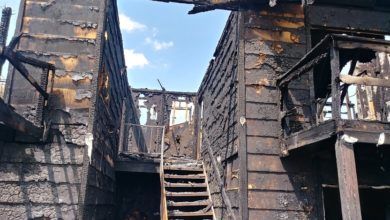UN nuclear watchdog begins review of controversial Fukushima water release

Tokyo, Feb 14 (EFE).- A team of experts from the United Nations nuclear watchdog Monday began a mission to review the process of releasing contaminated and processed water from the Fukushima Daiichi atomic power plant.
The International Atomic Energy Agency (IAEA) team met with Japanese government officials and the Tepco electricity company to assess the process that has triggered safety and environmental concerns.
Gustavo Caruso, director-coordinator of the IAEA’s nuclear safety and security department, said the team would offer its experience before, during, and after the discharge of the processed water at the Fukushima facilities.
Caruso heads the team to review the feasibility and safety of the spill plan as large quantities of processed water has accumulated at the damaged plant since its meltdown after a tsunami in 2011.
Since the storage space is running out, the Japanese government announced last April that it planned to dump the contaminated water into the Pacific after removing most of the radioactive elements.
The process will start in 2023.
But it has already angered neighboring countries, including China and South Korea, even as the government has sought assistance from the nuclear watchdog to help ensure it is done in line with international safety standards and without harming public health or the environment.
Local fishing communities have also raised concerns.
The IAEA team would “ensure the protection of people and the environment,” Caruso said.
He said the review would be carried out in an “objective, credible and science-based manner and help send a message of transparency and confidence to the people in Japan and beyond.”
Keiichi Yumoto, director-general for nuclear accident disaster response at the Japanese industry ministry, said the government requested “the strictest and most transparent evaluation.”
The IAEA task force team will visit the Fukushima plant on Tuesday to conduct a safety review of the water at the plant and see if the action plan, data, and documents met international safety standards, Caruso said.
The IAEA team has external experts from Argentina, China, France, South Korea, Russia, the United States, Vietnam, and the United Kingdom.
Members from Australia and Canada could not travel due to Covid-19 restrictions. EFE
cgv-ssk





